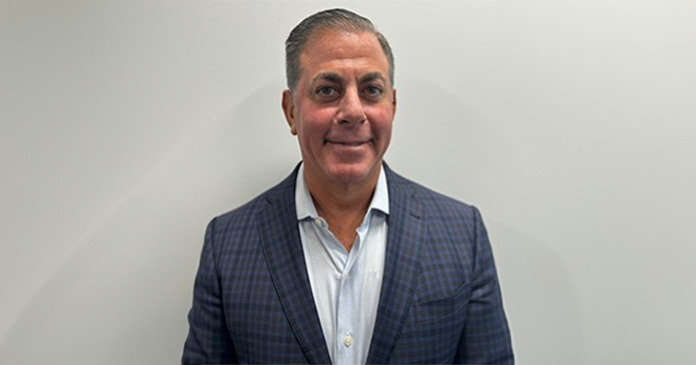Mike Rowe spoke with us about the skills gap—that chasm between the skills employers want employees to have and what workers actually bring to the job—several months before he was scheduled to address attendees at the National Apartment Association’s Apartmentalize conference in June.
Although he has made a name for himself narrating shows like Deadliest Catch and numerous TV commercials, he probably is best known as the Dirty Jobs guy for his eight-season run as executive producer and host of Discovery Channel’s popular show.
But no one person has championed the skilled trades and the need for vocational technical training in America more than Rowe, who lends his voice, time and social media pages to getting out the word about the millions of good jobs that remain unfilled because of a profound disconnect in the national perception of work.
Double narrative
“I became interested in the skills gap by accident,” Rowe said. “It was 2008 and Dirty Jobs was at its peak. The country was going into a recession and, interestingly, everywhere I went in the course of shooting that show in all 50 states, half a dozen times apiece, even as the headlines in the papers were talking about record-high unemployment, the people I was meeting and working with, at least those who ran businesses large and small, all had ‘help wanted’ signs up. It struck me as strange that the biggest challenge I was hearing from employers on Dirty Jobs was the difficulty of recruiting and specifically finding people who were enthusiastic about learning a skill that was actually in demand,” he said.
He realized there were two work-related narratives in the country—the narrative in the headlines that talked about wide-spread, chronic, systemic unemployment and a much quieter narrative that came down to the skills gap.
At that time, 2.3 million jobs were available in many areas, including the trades, that didn’t require a four-year degree, and Rowe wondered how he could call attention to them and to the reason they were out of favor.
He launched the mikeroweWORKS Foundation on Labor Day 2008 as a public relations campaign to debunk myths around the skilled trades and highlight good jobs that actually exist. In an effort to help close the skills gap, the Foundation started the Work Ethic Scholarship Program in 2014 to provide financial assistance to people who are willing to learn a trade.
“But we still spend a fair amount of time simply talking about good jobs that actually exist, mostly because no one else seems to be doing that,” he said.
This begs the question of what constitutes a good job. It’s an important question, said Rowe, because today 44 percent of college graduates who may have gone in debt to pursue a career remain unemployed.
“I said it a few years ago and still think it’s true. We’re lending money we don’t have to kids who can’t pay it back to train them for jobs that don’t exist anymore,” said Rowe.
And therein lies the rub. First and foremost, a good job is one that actually exists.
There are around 6 million unfilled jobs in America that don’t require a college degree, said Rowe, and many people don’t realize they not only pay well, but also provide a path to entrepreneurship and small business ownership.
Proactive private industry
Another component of Rowe’s foundation became identifying groups that are working to close the skills gap and helping them do it better. To this end, he formed relationships with organizations like the Boy Scouts of America, the Future Farmers of America, Project Jumpstart and Skills USA—all of which struggle with public relations.
Project Jumpstart is one of a dozen organizations Rowe came across in the past 10 years that he thought does great work, but suffers from bad marketing. “Because my little foundation is primarily a megaphone for the skilled trades, I learned along the way that a lot of larger, more robust, foundations were failing terribly at getting out of their own way and telling their story in a way that resonates with employers, consumers and kids. I approached them saying, ‘Look you have to do a better job telling your story. Let me tell it,’” said Rowe.
Project Jumpstart is a private group in Baltimore, where Rowe grew up, that offers a 14-week, high-intensity pre-apprenticeship program to pre-qualify candidates for on-the-job training.
“They train anyone willing to make a persuasive case for themselves and they went to people who hit rock bottom and were ready to turn their life around. But Project Jumpstart didn’t come out of a place of altruism or ‘Gosh, we need to help these people in the inner city who don’t have work’ or ‘We need to help convicts who want to turn their lives around.’ It evolved out of a place of desperation on behalf of the Associated Builders and Contractors, a big organization back East that was struggling with the skills gap,” he said, pointing to their 80 percent placement rate as a prime example of private industry succeeding where government has failed.
The program provides enrollees with stipends, transportation and counselling that help to get barriers to entry into steady work out of the way.
“But their goal is not to make sure everyone who applies gets a job,” said Rowe. “It’s to make sure that everyone hired succeeds. Which means you can fail. If your cell phone rings in the middle of a class, you lose your $40 a day stipend. If it happens again, you’re out of the program. Show up with your shirt not tucked in, or show up late, you’re out. Mouth off, you’re out.
“There are consequences, and a lot of similar programs don’t have these kinds of consequences because their focus is on the individual. There is focus on the individual here, too, but these guys understand that if they place a graduate on a job site and he or she fails, it’s bad for the program, bad for the employer and also bad for the graduate, but the graduate is not the most important thing. The most important thing is making sure a qualified candidate gets hooked up with an employer who isn’t disappointed, so there is some rigor in it that you don’t find in other programs,” said Rowe,
The mikeroweWORKS Foundation’s Work Ethic Scholarship Program employs similar rigor. “We use what’s called a S.W.E.A.T. pledge. It stands for Skills and Work Ethic Aren’t Taboo. It has 12 basic points and everybody who applies for a work ethic scholarship needs to read and sign it,” said Rowe.
In addition to scholastic performance, the mikeroweWORKS Foundation takes into account attendance records and asks applicants to make a case for themselves, both in a video and in an essay, and also requires two references. “We make it hard because I think employers are looking for people who are truly motivated and have a classic sense of what a work ethic is,” he said.
Rowe suggests Project Jumpstart’s success provides anecdotal lessons for the apartment industry—that the lowest rung on the ladder is actually the most important. “Don’t forget it’s there and, if it’s not, then build one and remember that the journey of a skilled tradesman to a prosperous citizen usually starts with attitude and work ethic,” he said.
The mikeroweWORKS Foundation began accepting applications for the 2018 Work Ethic Scholarship Program in April.
Unrealistic expectations
Has the boom-and-bust nature of the construction industry aggravated today’s labor shortage? Rowe answered, “The cyclical nature of work is and always will be a factor in construction. But I don’t think it has anything to do with the current skills gap, at least in relative terms more than it did 50 years ago.”
What’s changed, he said, is the expectation that our jobs will always be there, always be secure and always pay what is commensurate with inflation.
“We now believe it’s not enough for the job to exist. It has to exist in the zip code where we live, because something else that’s changed is the willingness or even the eagerness that used to exist with regard to moving where the opportunities are.
“The bottom didn’t drop out of the entire construction industry in 2008. A skilled tradesman willing to move to where the action was still had opportunities, even at the height of the recession. It’s never been fun to suddenly have to move, but from what I’ve seen and the studies I’ve read, the resistance to doing so today is far greater than it ever was,” he said.
Unrealistic expectations around employment point to a sea change in the way hard work itself is viewed in America. “It’s now looked at as an enemy, an impediment to job satisfaction. The less we work, the happier we become. That’s a relatively new construct and I think it’s one a lot of people believe and it’s why A 4-Hour work Week is a best-selling book,” he said.
Another example of the disparagement of hard work is Hasbro’s recent removal of the wheelbarrow, the work boot and the thimble as tokens in the game of Monopoly. These symbols of America’s workforce have been replaced by a T-Rex, a rubber duck and a penguin.
This change reflects a poll that Hasbro took rather than the manufacturer’s idea to change the tokens, said Rowe.
“It was 100,000 people who voted on a number of tokens and they didn’t want to see wheelbarrows or work boots or thimbles, these classic representations of entire industries or jobs. It might be a stretch to make a point of it, but if you look around at all the other examples in pop culture, where other symbols are being arbitraged out of the conversation, you begin to think it’s not a coincidence,” he said.
Changing people’s awareness of what constitutes a good job won’t happen until people understand the skills gap, a term that only entered the national dialogue during the current decade.
Rowe testified about it several times to Congress, but hesitates to take credit for more than moving the needle in the right direction.
“I am happy to say that a lot of new trade schools have opened since I started screaming about it and a lot of vocational-technical education has been reintroduced into high schools since we started,” he said.
Message not money
Congress has earmarked an additional $75 million in funding over 2017 levels toward the Carl D. Perkins Career and Technical Education Act, which provides federal money for vocational-technical programs for youth and adults. Politicians and industry pundits think the additional funds could help local officials establish more trades-focused education programs.
But the nation’s shortage of skilled tradesmen goes beyond state, local and federal government assistance, said Rowe. The bigger challenge is convincing parents that learning a skill in the trades can lead to a well-paid and satisfying career and then passing that message on to kids.
“It helps to have the feds involved but fundamentally, shop class left high schools not because of funding, but because parents weren’t pushing their kids into those careers and kids weren’t interested in those jobs,” he said.
“We’ve trained an entire generation to believe those aren’t good jobs, that people only do them when they have no other choice and that’s just not true. There’s no better way to tell a kid what’s important or what isn’t than by removing it. If you are going to take shop class out of high school, I can draw a straight line from that to taking the wheelbarrow out of the Monopoly game.
“We’re all in this and, like the bubble when it collapses, the bailout is going to involve everyone. The cost of college is a symptom. The skills gap is a symptom. Everything we’re talking about here is a symptom of our larger dysfunctional relationship with work and a national workforce out of balance,” he said. “We have to turn that around, because if the average person with a plumbing emergency can’t get a plumber to their home for three days, it’s a problem. If you can’t get the power on for a week after a national disaster knocks it out, that’s a crisis. So, we must elevate the existence of millions of available jobs to something beyond an opportunity for individuals into a kind of crisis for the country.”
















